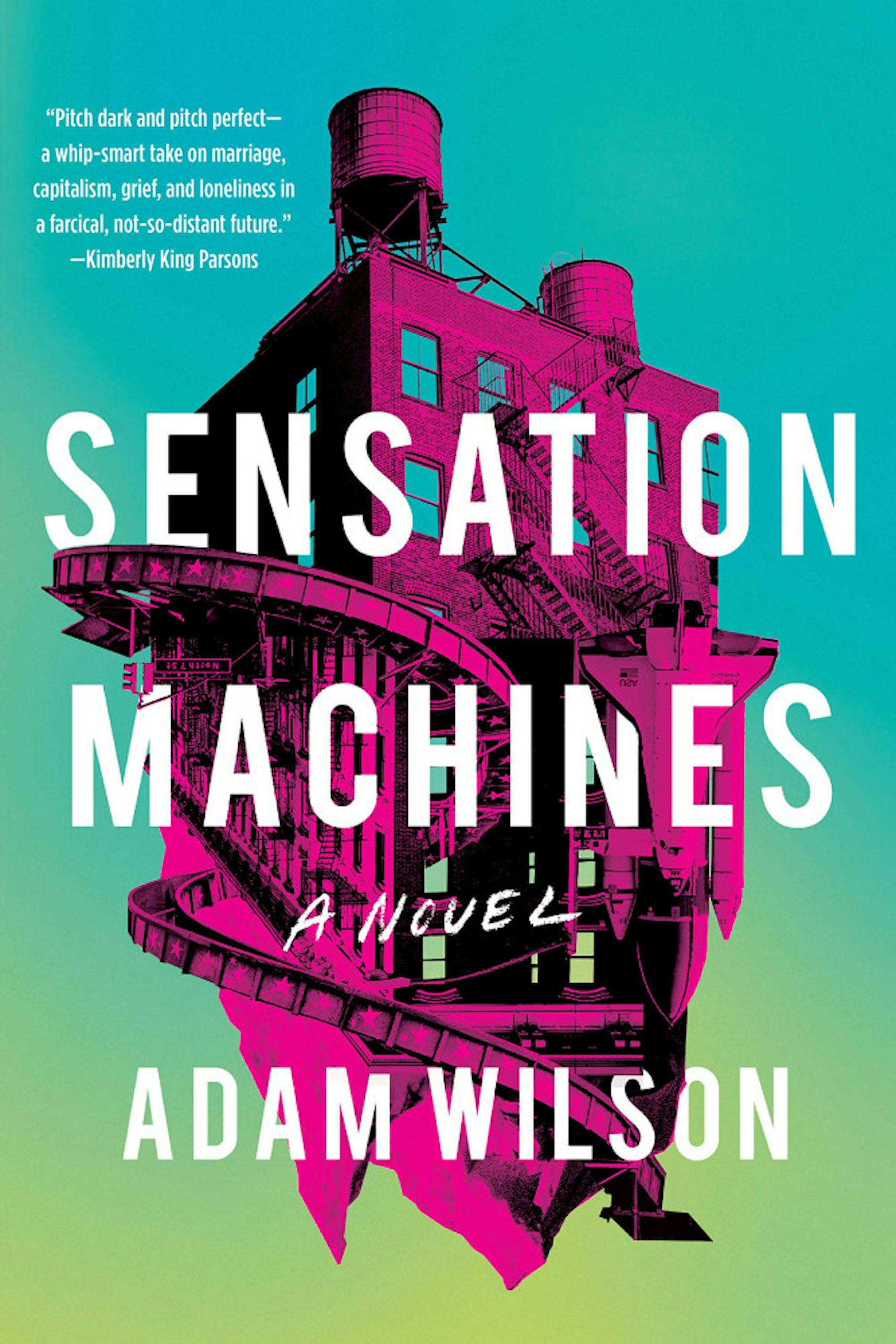Novelist Adam Wilson (LA’04) first published his new novel “Sensation Machines” on July 7, 2020. Soho Press released the novel in a paperback edition on Tuesday with an in-person event to follow on Sept. 13.
“Sensation Machines” is set in a near-future New York City. It explores the social, political and economic effects of the larger issues playing out in today’s society. Its main characters are a married couple, Michael and Wendy, whose many emotions following a shared loss begin to seep into their workplaces. Wilson’s portrayal of their decisions made at their high-profile jobs reveals pervasive corruption.
Wilson also brings in the perspectives of other characters, positioned in many levels of society, to illustrate the trickle-down effect that choices made by a privileged few have on a largely powerless majority. Though originally published over a year ago, the themes step in time with the current, ever-moving society.
One of the most important elements of Wilson’s writing is his use of humor, balanced with the more complicated events and emotions his characters face.
“My primary instinct as a writer is always one that bends towards humor and comedy," Wilson said. "For this book, the big challenge for me is that I wanted to write about all these big issues and topics and themes, and to try to figure out how to both make the book funny and fun and playful without doing so to a degree that it undercut the seriousness of some of that other stuff.”
His use of humor throughout the novel also served to imbue the more technical, serious topics being discussed with a new energy.
“The other side of that is the novel explores finance and the mortgage crisis and the economy –– certain things that might be dry or boring if it wasn’t infused with jokes and humor,” he said.
Elaborating on the intricacies of writing Michael and Wendy’s relationship, Wilson explained his desire to represent his two main characters fully in the novel.
“It was really important to me that I tell both of their stories, and that they both had a voice in the book,” he said. “I have two kinds of voices that I feel comfortable doing as a writer. One is this voice Michael has — he speaks in these very long sentences and can get bombastic and lyrical at times; everything is moving very fast.”
Wilson described the other voice, that of Wendy, as “more restrained ... thoughtful or reflective.”
“It’s [a story] about two people who do really love each other and want to be together but for reasons external to their control can’t really figure out how to make that work,” he said.
Wilson also commented on the importance of introducing other character perspectives separate from the couple. He admitted it was difficult to write so many different characters but necessary to show how Michael’s choices as a derivatives trader or Wendy’s decisions in a large marketing campaign “affect all sorts of other people in many profound and quite negative ways.”
“The people behind these things ... are shielded from the effects of those behaviors on the wider population,” he said.
Wilson admitted that his many character voices came “through trial and error and mostly error.” In fact, the book took eight years to finish. This lengthy process was partly due to the challenge of combining so many character perspectives, but was also related to changes in Wilson's personal life and the world at large.
“When I started writing the book, I was single and had no kids and by the time I was done writing the book, I was married, and I had a kid,” Wilson said. “I think that changed the way I thought about Michael and Wendy … Also, the world changed a lot.”
Specifically, Trump’s election disrupted his construction of his novel's near-future.
“The dystopia I had come up with wasn't nearly dystopic enough," he said. "I had to go back and make everything worse.”
Reflecting further, Wilson explained how setting his book in the future enabled him to construct an understanding of the 2008 financial crisis that was more imaginative than factual.
“When I first started writing the book, I was trying to write a novel set around the 2008 Wall Street crash, [but] it became very clear that it would involve a lot more research than I wanted to do,” he said. “I’m a novelist, not an economist. So, I had this bright idea to set the book in the future instead. It felt freeing to the imagination.”
In addition to this novel, Wilson has also written the novel “Flatscreen” (2012) and the collection of short stories titled “What’s Important Is Feeling” (2014). Two of the stories are set at Tufts –– though never directly stated, the stories’ details make it clear.
“Sensation Machines” is poignant for all thinkers grappling with the effects of everyday issues and available now in paperback for an eager browser at any local bookstore or a new student who needs a read for the Commons picnic tables.






